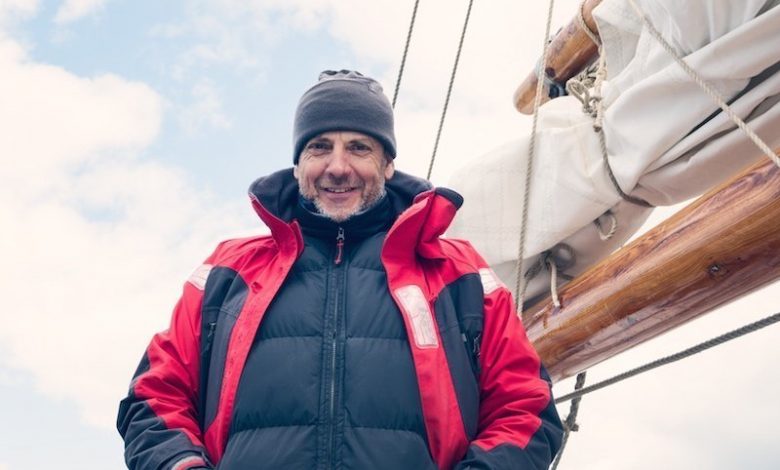Timbercoast: The low impact sailing alternative

Friday traditionally is the slot for Maritime CEO to publish a shipowner interview. Today is no exception. However, in Cornelius Bockermann and his firm Timbercoast we have something new for this title. A shipowner who does not rely on engine power.
Bockermann, a master mariner who hails from Bremen, founded Timbercoast to provide wind-powered cargo shipping, linking sustainable producers with their ecological consumers.
Three years ago, Timbercoast bought the Avontuur (pictured below), a beautiful 44 m long two masted, gaff-rigged schooner which was built in 1920 in the Netherlands. Refitted and now with a 114 ton carrying capacity, the ship will next month kick off a liner service between Western Europe and Canada, a route it aims to make up to two times a year.
The company is currently designing an emission free replacement for its auxillary diesel engine. The plan is to install an electric motor powered by batteries that will in turn be charged by a hydrogen or methanol powered fuel cell.
Bockermann explains the origins for Timbercoast. “Over the course of 20 years working in the maritime industry,” he recounts, “I witnessed first hand how shipping affects our environment.”
In 2013, Bockermann moved with his family to Cairns, Australia and shipped all of their possessions from Germany to their new home in Australia.
“Through the process of shipping my own goods I experienced the disconnect between commerce and environmental preservation,” he says. “The cost of shipping my possessions around the world and across two oceans was three times cheaper than trucking it from Brisbane to Cairns. After learning of the plans to expand shipping along the Queensland coast and amongst the Great Barrier Reef I knew it was time to act.”
Bockermann says the idea behind Timbercoast is simple.
“We want to disrupt the business as usual approach to shipping by offering a truly low impact shipping alternative. Together with the support of our partners in the Sail Cargo Alliance, we are providing a truly sustainable and environmentally responsible service,” he says.
Bockermann is not out to compete with what he describes as the “environmentally destructive, bigger, faster, and cheaper approach to commercial shipping”.
“The people interested in shipping their goods with us do not need to be convinced of the merits of sailing cargo but rather are excited to be at the forefront of a truly disruptive approach for a healthy shipping culture,” he explains.
With a permanent transatlantic liner service starting soon, Timbercoast has partnered with Port Franc Logistics to ensure cargoes are loaded and offloaded onto electric trucks making the service “the worlds first truly low impact transoceanic logistics chain”, according to Bockermann. In between the Canadian services the Avontuur will be sailing into the Caribbean and servicing the North Sea.
Getting to where the company is today, on the cusp of a debut service has not been easy, as Bockermann reflects.
“In this David versus Goliath situation, we’ve had and continue to have many big challenges,” he says.
Nevertheless, more sailing ships are very much on the cards for Timbercoast. “As we develop the market for sailed goods, we surely wish to grow our fleet and inspire corporate reflection on their shipping choices,” Bockermann concludes.

